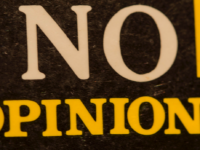Canadian Heritage Minister Steven Guilbeault continued his media tour in support of link taxes and Internet content regulation yesterday with interviews in the Toronto Star and Radio-Canada. The Toronto Star compares technology companies to polluters, doubles down on calling social media linking to news articles without a licence “immoral”, questions why Facebook has said it will stop news sharing in Australia with mandated licensing (“I’m like, really guys”), and raises the possibility of using copyright to require payments for linking. In the Radio-Canada interview, he admits that Netflix already invests in Canada (CRTC chair Ian Scott says it is the biggest single contributor to film and television production in Canada) but that he wants regulation to raise hundreds of millions of dollars to support francophone, native, and minority community productions.
I’ve written extensively on why the claim that linking without a licence is immoral is wrong, why Facebook is right to push back against link licensing, and how Canadian film and television production is enjoying record success because of international streaming services, not in spite of them. But there is one line in the Radio-Canada that particularly caught my attention. When asked about the timing of a bill to mandate online Cancon, Guilbeault acknowledges that “obviously I am not the only minister [responsible] for the bill.”











